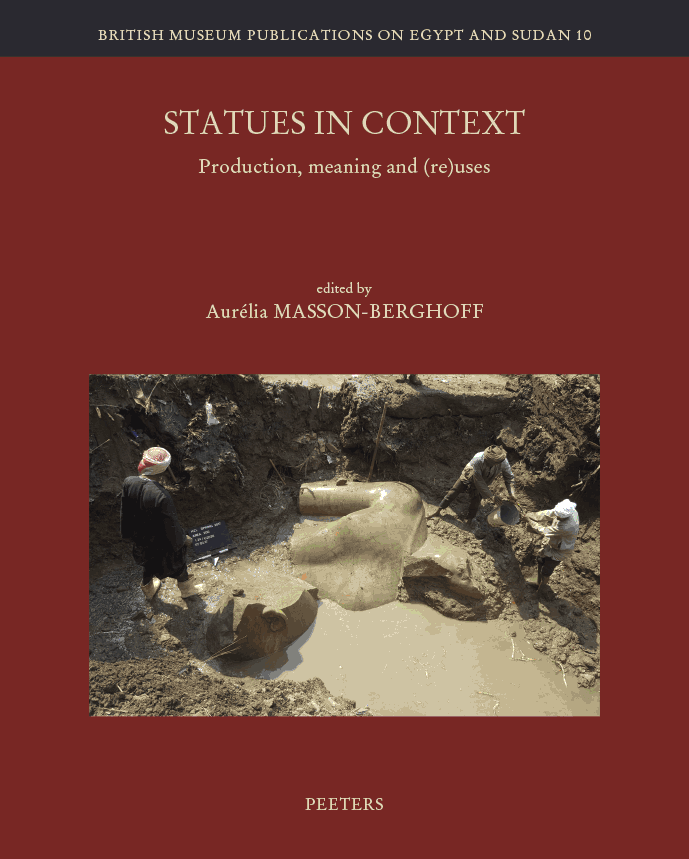

 0
FR
0
FR

Moving beyond typological and stylistic discourses on Egyptian statuary,
the papers gathered here seek to explore the architectural, cultic and
production contexts of statuary, to shed light on religious or cultural
practices, and the political or economic agenda behind the display or
hiding of these sculptures. How and why were they originally displayed
or kept invisible, transported, transformed or buried?
New
discoveries, the re-contextualisation of earlier excavated statues as
well as recent scientific analyses provide significant new insights into
the production, meaning and (re-)uses of statues. This collection of
papers encompasses the full typological and chronological range – from
the Old Kingdom to Late Antiquity – and includes statuary of all scales,
from colossi to figurines. The studies cover statues mainly set up in
temples, palaces, houses and tombs, and the later biographies of statues’
assemblages.



